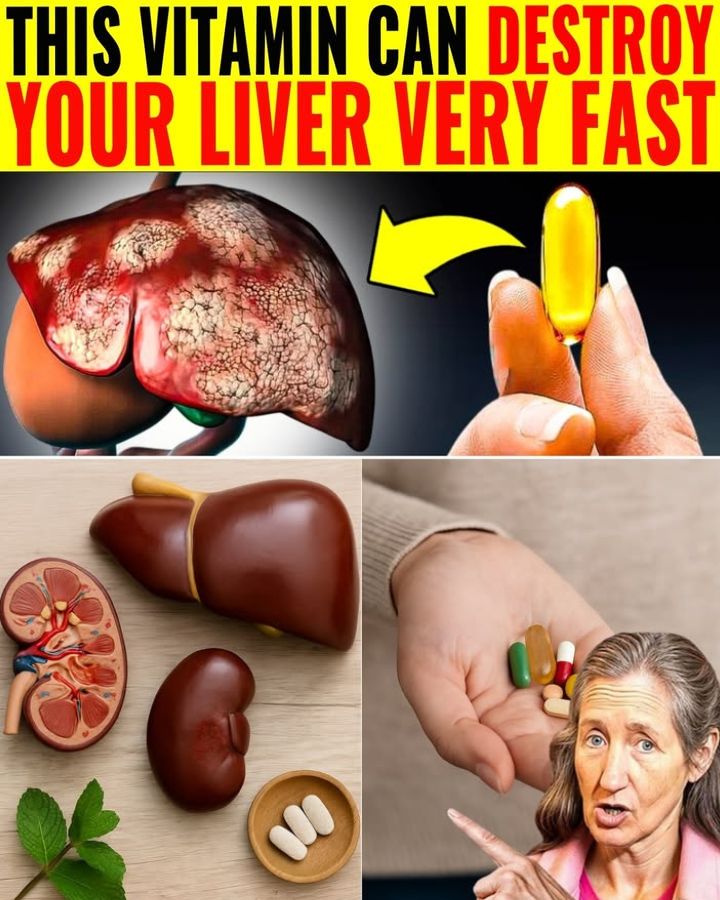How to Take Vitamins Without Stressing Your Liver or Kidneys
When you take a supplement, you probably do it with good intentions—more energy, better immunity, or filling nutritional gaps. But without knowing it, some of those capsules could be quietly putting stress on your liver or kidneys.
While most supplements are safe when used properly, long-term misuse or taking excessive doses can overwhelm your organs. In this guide, we’ll explore how to take supplements safely so you can enjoy the benefits without the risk.
Why Your Liver and Kidneys Deserve More Credit
These Organs Do More Than You Think
Your liver and kidneys are crucial to keeping your body in balance. The liver processes nutrients and detoxifies your blood, while the kidneys filter waste and maintain hydration and electrolyte levels.
When supplements are taken in high doses or without medical guidance, they can force these organs to work overtime. According to the NIH, this strain may contribute to organ damage in some rare but serious cases.
Understanding how your organs process supplements is key to protecting them. It’s not just about what you take—but how and why you take it.
Supplements That Deserve Extra Caution
Some May Be Riskier Than You Realize
Most people think of vitamins as harmless, but certain supplements—especially in large doses—can be problematic for liver or kidney health.
Vitamin A: Taking more than 10,000 IU daily (especially in retinol form) has been linked to liver toxicity.
Vitamin D: Essential for bone health, but high doses can raise calcium levels, putting strain on kidneys.
Iron: Unnecessary supplementation, especially without medical need, may accumulate in the liver and cause issues.
Herbal supplements: Natural doesn’t always mean safe. Herbs like kava and comfrey have been associated with liver damage.
Protein powders: Excessive protein, particularly in those with kidney problems, may worsen kidney function over time.
The risks are low when these are taken responsibly. But knowing what to watch for is your first line of defense.
9 Essential Tips to Use Supplements Safely
Protect Your Liver and Kidneys with These Smart Habits
✅ 1. Talk to Your Doctor First
Before starting any new supplement, especially if you’re on medication or managing a health condition, consult your doctor. This is crucial if you have any history of liver or kidney disease.
✅ 2. Stick to the Recommended Dose
More doesn’t mean better. Follow the label or use guidelines from trusted health authorities. Overdoing it—even with something like vitamin D—can create more problems than it solves.
📌Thank you for reading the article.
✅ 3. Choose Trusted Brands
Look for third-party tested supplements (like USP or NSF-certified). These certifications ensure you’re getting what’s on the label—without hidden contaminants or misleading ingredients.
✅ 4. Don’t Mix Without Guidance
Some supplements interact poorly with each other—or with prescription drugs. Keep your doctor informed about everything you take to avoid unwanted reactions.
✅ 5. Stay Well Hydrated
Especially if you’re using protein or creatine supplements, staying hydrated helps your kidneys flush waste efficiently. Aim for at least 8–10 cups of water a day.
✅ 6. Pay Attention to Symptoms
Look out for yellowing skin, fatigue, nausea, or dark urine—potential signs of liver or kidney strain. Stop taking the supplement and contact your doctor if symptoms appear.
✅ 7. Prioritize Food First
Whenever possible, get nutrients from real food. Leafy greens, nuts, fruits, and lean proteins provide a full spectrum of vitamins and minerals—often in safer, more bioavailable forms.
✅ 8. Limit Herbal Supplements
Herbs like kava or comfrey may be labeled “natural,” but they carry risks. Unless prescribed or recommended by a professional, be cautious with unregulated herbal products.
✅ 9. Get Routine Checkups
Ask your doctor about occasional liver and kidney function tests (such as ALT, AST, or creatinine). These can catch problems early, before they become serious.
By building these habits into your wellness routine, you can safely enjoy the benefits of vitamins and supplements without putting your health at risk.
